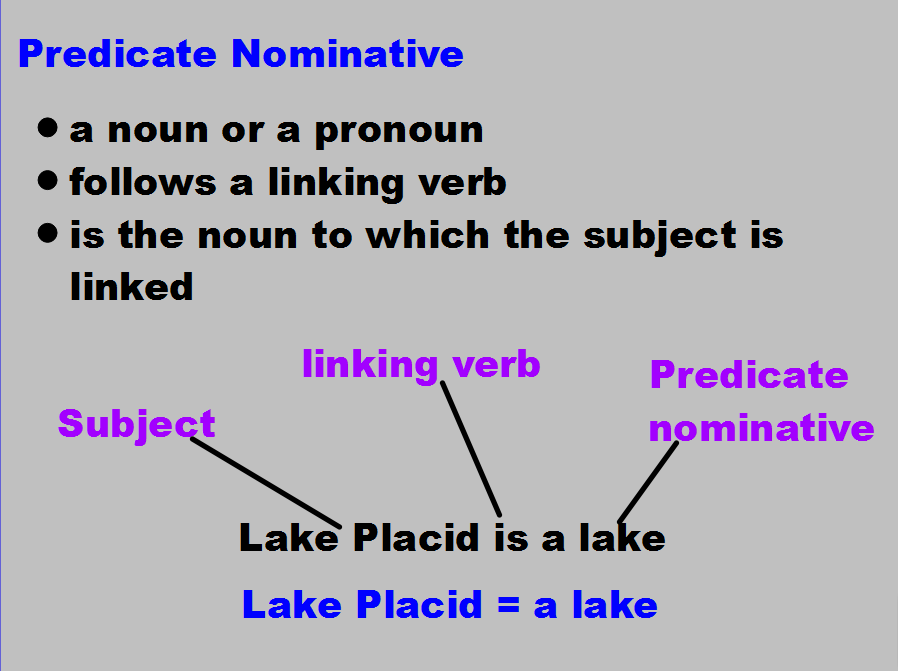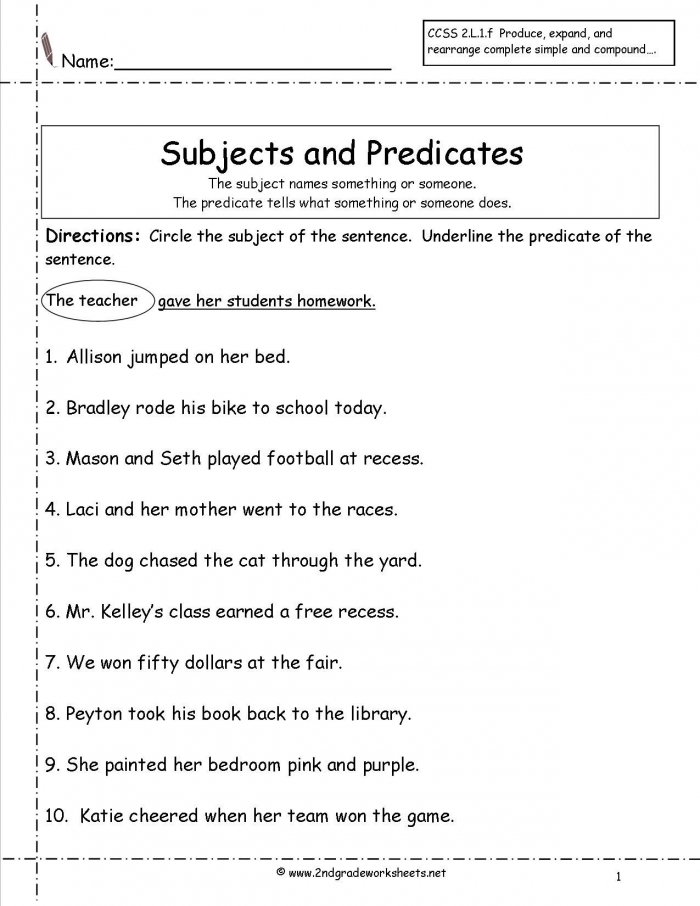

The predicate must contain a verb, and the verb requires or permits other elements to complete the predicate, or it precludes them from doing so. The predicate is one of the two main parts of a sentence (the other being the subject, which the predicate modifies).


It is also the understanding of predicates as defined in English-language dictionaries. This classical understanding of predicates was adopted more or less directly into Latin and Greek grammars and from there, it made its way into English grammars, where it is applied directly to the analysis of sentence structure. Thus, the expression "is moving" is true of anything that is moving. A predicate is therefore an expression that can be true of something. A predicate is seen as a property that a subject has or is characterized by. The notion of a predicate in traditional grammar traces back to Aristotelian logic. Differences between these two definitions can lead to confusion. By the second definition, the predicate of the same sentence is just the content verb likes, whereby Frank and cake are the arguments of this predicate. Thus, by the first definition the predicate of the sentence Frank likes cake is likes cake. The first defines a predicate as everything in a standard declarative sentence except the subject, and the other views it as just the main content verb or associated predicative expression of a clause. The term predicate is used in one of two ways in linguistics and its subfields.


 0 kommentar(er)
0 kommentar(er)
